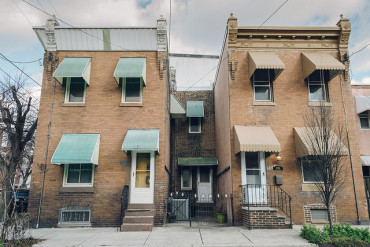How Does Premises Liability Work In Pennsylvania?

A premises liability case is a personal injury claim in which someone is injured on another person’s or entity’s property and the injury was caused due to the careless conduct of the property owner or manager. The term premises liability is really a catch-all phrase that refers to claims made against the owners or occupiers of property where someone was hurt.
Understanding premises liability law in Pennsylvania can be complicated as it covers a variety of different types of injuries and situations. This post seeks to clarify some of your questions about premises liability. The important thing to note is that if you have been seriously injured on someone else’s property and you believe it was due to his or her negligence, then you should contact an experienced premises liability attorney at Ross Feller Casey.
What Is Considered Premises Liability In Pennsylvania?
Premises liability is a legal theory that says that property owners or occupants can be held responsible for injuries and accidents that happen on their property. Under this theory, in Pennsylvania, property owners, occupiers, or managers have a responsibility to provide visitors or residents of the property with a reasonably safe environment.
If a hazardous condition develops on the property, the property owner should provide warnings until the dangerous condition can be fixed. If the owner of the property knows about a hazardous condition but fails to remedy the problem, it may become a premises liability case if someone is injured as a result of the unrepaired hazard.
Premises liability claims may apply to any private or public property including homes, apartment complexes, grocery stores, office buildings, malls, restaurants, hotels, hospitals, theaters, dorms, entertainment venues, and many others. Typical hazardous conditions occur due to wet or slippery floors, broken flooring, broken windows, insufficient lighting, damaged carpets, or any other similar conditions.
Is Premises Liability Negligence?
In Pennsylvania, if an individual is injured on someone else’s property, the individual may be able to file a premises liability claim against the property owner. However, to win the lawsuit, there are certain things that must be proven. Negligence is almost always one of those things. While there are a few exceptions in which negligence doesn’t have to be proven (an animal attack is one such exception), most premises liability cases, like other personal injury claims, must show that the property owner was somehow negligent and that is what caused the injury.
What Must Be Proven In A Premises Liability Case?
In addition to negligence, there are some key factors that must be proven in a premises liability case. These are the four elements that an individual filing a premises liability case must prove:
- The property owner had a duty of care to the injured party
- The property owner violated the duty of care
- The breach of the duty of care caused the injuries
- The injuries resulted in damages
The four items above must be proven by a preponderance of the evidence in a civil case. That means that as the injured party, you would have to establish facts that show that it is more likely than not the owner of the property had a duty of care, that he or she violated that duty, the violations caused your injury, and that the injury caused your damages.
Is Premises Liability The Same As General Liability?
When premises liability and general liability are discussed, it is usually related to the type of insurance that property owners must carry on their properties. In a premises liability lawsuit, it is the insurance company of the property owner that will likely have to pay any damages that are awarded to the injured person by the court.
General liability insurance covers certain incidents that occur at a business, including:
- Third-party bodily injury
- Product liability
- Third-party property damage
- Libel, slander, and copyright
Premises liability is typically included in a general liability policy, which means that if, for example, a customer slips and falls in a grocery store, both the general and premises liability policies could cover the individual’s damages. Why would a business need both, you might wonder? A separate premises liability policy will have higher coverage than the general liability policy.
What To Do If You Have A Premises Liability Case
If you have been seriously injured due to someone’s negligence at a home or business and are looking for a premises liability attorney in Pennsylvania, Ross Feller Casey can help you. Our experienced lawyers have a proven track record of winning premises liability cases for our clients, including numerous multimillion-dollar recoveries in these types of lawsuits.
At Ross Feller Casey, we work all our cases, including premises liability claims, on a contingency basis. That means that there is no charge to you until there is a financial recovery in your case. Please contact our office to schedule your free case evaluation with one of our premises liability attorneys today. There is a time limit on this type of case, so don’t delay in scheduling your appointment.
Disclaimer: Ross Feller Casey, LLP provides legal advice only after an attorney-client relationship is formed. Our website is an introduction to the firm and does not create a relationship between our attorneys and clients. An attorney-client relationship is formed only after a written agreement is signed by the client and the firm. Because every case is unique, the description of awards and summary of cases successfully handled are not intended to imply or guarantee that same success in other cases. Ross Feller Casey, LLP represents catastrophically injured persons and their families in injury and wrongful death cases, providing legal representation in Pennsylvania and New Jersey.





